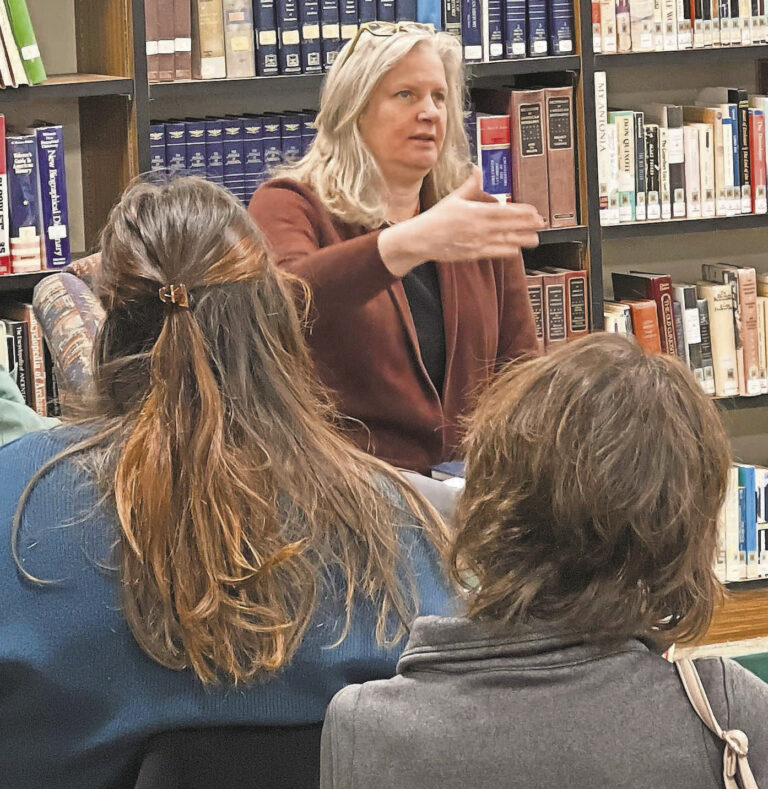State Representative Jenn Hill arrived at the Munising School Public Library for an open question and answer session on Saturday January 20TH.
Among the issues addressed were efforts to undo energy bills, redistricting efforts and the Munising Marketplace.
Energy
In November of 23, the governor of Michigan signed a bill that “put Michigan in the lead for clean energy,” according to the governor’s press release dated November 28th, 2023. An effort to repeal the law is currently underway, seeking 356,958 signatures within 180 days to rescind the new law which will not take effect until November of 2024.
“We need to find ways to transition to new energy system globally.” Rep. Hill pointed out.
In 2016, the state was looking at 15% renewable power. In the last 15 – 16 years, technology has changed the content of the energy portfolio. The state has a current goal to be 100% clean energy by 2040.
For projects of a large size, hundreds of acres can be decided on. According to Rep Hill, this new law will create a framework that’s adaptable and address “where we’re going to put stuff.” The decision can be decided by a public service commission. When a pending sale is too divisive in a community or the community government is not equipped to deal with the exchange, they can pass it off to a three-person commission to make the decisions.
One fear has been that the government or the commission can “take” the required land under eminent domain. The new energy law specifies the no eminent domain will exist. Eminent domain law itself does not cover energy production. Use or sale of land will be initiated by the owner of the property.
Dr. Martin Kushler, Senior Fellow with the American Council for an Energy Efficient Economy, said “Michigan is almost entirely dependent upon imports from other states and countries for all of the fossil fuels we consume. We import 100% of the coal, 92% of the natural gas, and 97% of the oil and petroleum products we use, which drains over $18 billion a year from the state economy.”
It is projected that the new law will “…lower household utility costs by an average of $145 a year, create 160,000 good-paying jobs, and bring nearly $8 billion of federal tax dollars home to Michigan for clean energy projects,” according to Governor Whitmer.
Between seven and ten districts are being “redrawn” throughout the state, though the redistricting does not affect the UP.
There are approximately 90,000 people in each house district community. The last time it was redrawn, there were some issues raised by concerned groups. According to Rep. Hill, a judge agreed with these concerns, and it was decided to redraw the districts. On Feb 2, the final map will be ready. The redistricting has had very little impact on legislator business overall. The final districts “will play out in the courts.”
Marketplace
Michigan State Housing Authority (MSHA) has been receiving funds for 40 years. The amount has not been relatively large. These funds have traditionally been used on a narrow strip of projects. This year, there is more money available and some lesser restrictions on its use.
Housing is the #1 issue in every county. There are some counties that are needing 1,200 additional housing units, where they are building at a rate of only 200 new housing units each year.
In Munising, the Marketplace has been seen as a solution, at least in part, to the housing needs of the community.
The Marketplace is combined with MEDC, State, and Federal money. As a result, they need tenants to offset the costs. The community asked for a grocer, but that was not working on the timeline set for the project. “Federal money has strings.” Rep. Hill reminded her audience, but she says, “the right people are talking to the right people.”
“Your letters are helping. “Rep Hill stated. “Your letters, your calls.”
The meeting closed with many thanks expressed by those attending.
